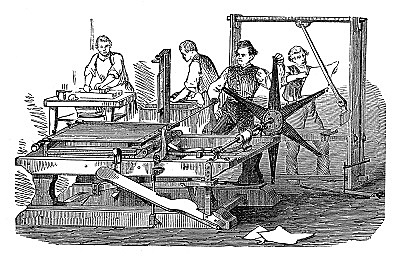The Industrial Revolution Part 3: A Magnificent Century
Watch the video on our YouTube channel.
Source: Video: The The Industrial Revolution: A Program in Three Parts (Indianapolis: Liberty Fund, 2000).
Viewing Guide created by Amy Willis, Arizona Council on Economic Education (ACEE), 2005.
1. Why was Great Britain known as the “workshop of the world”?
2. How does Professor Hartwell explain the “apparent paradox” of increasing production and decreasing standards of living during the Industrial Revolution?
3. Identify the factors that led to such a great rise in consumer spending (consumption) during the Industrial Revolution.
4. What problems resulted from the rapid expansion of cities, and how did the Industrial Revolution, the cause of such problems, also solve them?
5. Paraphrase Thomas Malthus’ argument (as explained by Ronald Coase) regarding population growth.
6. Explain the meaning of the following quote: “The idea of progress is largely psychological, and certainly relative.”
7. On what grounds does Professor Hartwell dispel the horrific claims regarding child labor abuses during the Industrial Revolution?
8. Describe how a sense of social duty arose from the Industrial Revolution-both among private citizens and Parliament.
9. How did Mr. Engels describe working conditions in Great Britain, and what prediction did he make?
10. Why did John Maynard Keynes proclaim that it was possible to “escape from the working class” during the Industrial Revolution? What societal impact did/does this possibility promote?
Concluding Question:
Was the Industrial Revolution a good thing or a bad thing for most people? Why is there such disagreement among historians in regard to this question? Explain.
